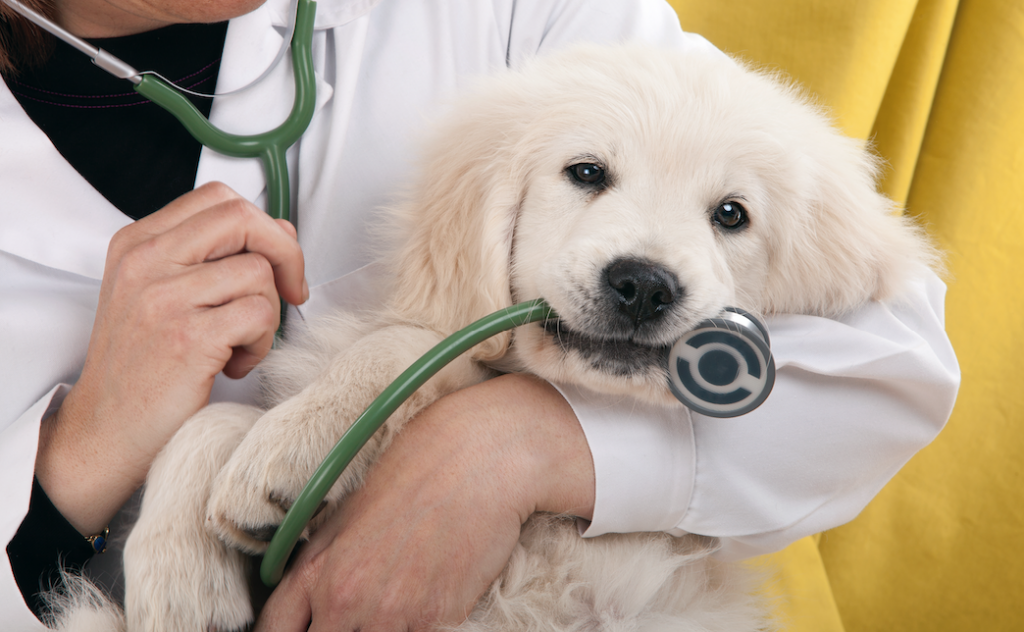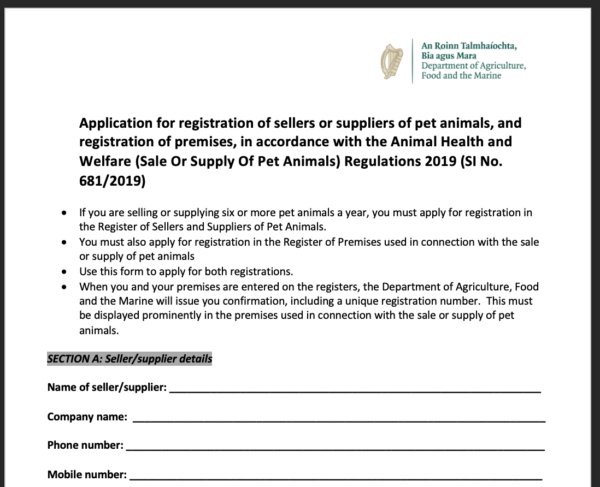There comes a time in every dog owner’s life when the question of breeding comes up. Perhaps you feel that your beautiful pooch would have the cutest puppies. Or maybe you’d like to give your family members a puppy of their own.
Whatever your reasons, you probably think it’s not such a bad idea and will be quite straightforward. After all, you just need to match your bitch with a suitable partner and hey presto, you’re good to go.
But here’s the thing — puppy breeding isn’t quite that simple.
So before you make any life-changing decisions (it really is that big of a deal), let’s answer a few questions first.

What’s your why?
Breeding a dog because its puppies will be the cutest isn’t a good idea. The fact is a pregnancy can be tough going on your dog and who wants to put their dog through something that’s unnecessary?
Likewise breeding for financial reasons is also a bad idea. Your dog is a family member and not a means to make some extra cash for the household.
Responsible breeders usually breed their dog to improve its lineage or to provide dogs for services otherwise known as utility dogs. These include guide dogs, Garda dogs, customs dogs, military dogs, farm dogs, and to a lesser extent, guard dogs.
So in short, if cuteness or money are your main motivations, then perhaps breeding isn’t the right path to take.

What do you know about breeding?
Like we said earlier, it’s not just about getting your dog pregnant. There’s A LOT more to it than that.
You need to know exactly what breeding entails. The trials and hardships that both you and your dog will go through during the pregnancy, the labour, and the first few weeks of having a litter of puppies in the home.
Puppy Care
Remember, none of the puppies will be ready for their new forever home until they are 8 weeks old. That’s two months of having 5-6 puppies in your home. In some cases, the litter may be even bigger. This can be a 24/7 type of job, and it’s not for everyone. Have we mentioned the potential for pee and poop everywhere and the noise?
You really need to consider if you and your family handle the care of that many puppies for two months? Do you know how to care for puppies of that age and when to start them on solid food? What about what type of food you should give a puppy? There is a lot to learn and just because you’ve raised one puppy, it does’t mean you can do if for 10 at the same time?
As you can see, there are so many aspects to breeding that you may not have thought of yet. So ask yourself this — are you truly ready and capable to care for your dog and her new litter?
What about your dog’s breed?
Breeding can vary a great deal from breed to breed. For example, some dogs are ready to breed from two years of age while others aren’t ready until they’re three.
You should also understand the various traits of your dog’s breed that may have an effect on their ability to breed or their suitability to taking care of new pups. It’s not enough to simply assume that your dog’s mothering instinct will kick in. There’s no doubt that it will, but your job as the owner could be much more difficult depending on the breed of dog.
The puppies’ new owners will also expect you to know EVERYTHING there is to know about the breed. They’ll want advice on how to manage their new puppy’s training and information on how fast it will grow. They’ll be particularly interested in the breed’s temperament.
It’s a breeder’s responsibility to know all of these things and to make sure that a new owner is well-informed.
What we’re saying here is that you must do your homework!
Are you ready to invest?
Breeding takes two types of investment — time and money.
Of course, dog owners understand that the care of their dog during its pregnancy and when the new litter arrives takes up a lot of time. But what many don’t realise is that there is also a financial cost involved too.
Visits to the vet during the pregnancy cost money and if there are any complications, the bills could mount up. New owners will expect their puppies to be wormed and have their initial vaccinations while there’s also the potential cost of microchipping and registration with the IKC.
Yes, the sale of the puppies will cover these costs, but bills need to be paid before you can sell.
The question is — can you afford to pay those bills without selling any of the pups?
Will I make money breeding dogs?
Prices for puppies are elastic, i.e. they fluctuate a lot due to supply and demand. Selling puppies also has a short window of opportunity, you can sell your dog from 8 weeks old, but as the dog gets older it may be harder and harder to find the puppy a new home.
If you are thinking about getting into breeding to make some quick money, you may be surprised how little money is actually in it. When you take the costs of vet visits, microchipping, vaccinations, taxes and food for the puppies, there may not be a whole lot left afterwards as a profit. Rearing puppies and taking proper care of the mother can take a lot of time. When you factor in your time, it may very well be that you are ‘paying’ yourself well below the minimum wage.
One further thing to consider is the number of puppies produced. Litter sizes can vary greatly, and it still takes a lot of effort to mind these puppies if you have a littler of 2 or 7 puppies, but any income (and expenses) would vary a lot.
Registration with the DAFM
Since 2020, if you intend to sell or supply 6 or more dogs in a year (and your average littler is likely to have close to 6 puppies) you will need to register with the Department of Agriculture, Food and the Marine before you can sell them. More information can be seen here about becoming a Registered Seller. The process is quite straight forward, basically it entails:
- You downloading and printing off a form provided
- Have your vet inspect your premises (new since 02.2023)
- Filling it in and signing your portion of the form.
- The taking a photo of the form and sending it to the Department of Agriculture
This document you need to fill out and return to the Department has guidelines around keeping records, what types of dogs you intend to breed, etc. . Questions about registering can be directed to petsalesregister@agriculture.gov.ie

This is covered under Statutory Instrument. No. 681 of 2019 [link], ANIMAL HEALTH AND WELFARE (SALE OR SUPPLY OF PET ANIMALS) REGULATIONS 2019.
If you have 6 or more bitches of breeding age you will need to register with your local City / County Council to become a registered Dog Breeding Establishment (DBE).
Are you ready for the unexpected?
Breeding isn’t an exact science. Your dog may have fewer pups than you expected or perhaps even more. In 2019 an Irish Setter had an incredible 16-pup litter while a few years previously another of the same breed had 18 pups.
There’s also the chance that your dog may encounter complications during the pregnancy or that some of the pups won’t survive.
These are genuine possibilities that will not only have an impact on your finances but, more importantly, can have an emotional and physical effect on your dog.
Another complication could come from your puppies’ new owners. Not everyone understands how much is involved in that crucial first week with a new puppy and as a result, you’ll no doubt need to help out.
A few phone calls are easy enough, but in some cases, the new owner may decide that they’re not in a position to care for their new puppy. Although you’re under no legal obligation to take the puppy back, from a moral standpoint, you won’t want to see that puppy in a rescue centre. In fact, a responsible breeder will make sure that the new owner understands that they can return the puppy if they encounter any difficulties or have second thoughts.
So you need to be prepared to deal with the unexpected.
There’s so much involved in the successful breeding of a dog (even for non-pedigree dogs) that we’re really only scratching the surface here.
So should you breed your dog?
The truth is that every dog owner is different. If you have experience breeding and caring for pups and you can afford the time and money required, then it’s something you might consider.
However, for the vast majority of dog owners, breeding may not be the best option. After all, it’s extremely hard work for both the owner and the dog.
Our advice is to leave it to those with experience and the professionals. Besides that leaves you more time to have fun with your pooch and that’s what it’s all about, right?

What happens if my friends female dog(not my place to say breed) wants to breed her dog how does she advertise? What should she be aware of? And if it all works out with meeting a male is money exchanged there and then or when dog is pregnant? Highly confused
Hi Irena
I would recommend taking a look at the listed stud dogs to see if there is a match. You don’t need to pay to advertise in this case.
If you can’t find a match you could post your female dog looking for a sire of a litter. A lot goes in to breeding, so I’d recommend you buy a book or two about it. For the terms of a contract, we have an example one here where you can set our the terms and conditions, http://www.dogs.ie/stud-contract/